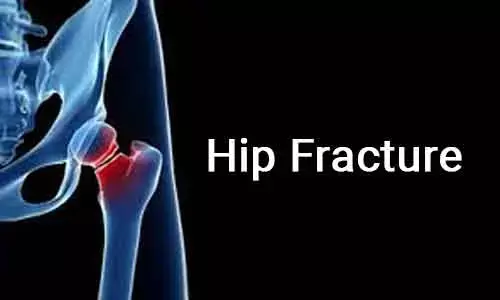- Home
- Medical news & Guidelines
- Anesthesiology
- Cardiology and CTVS
- Critical Care
- Dentistry
- Dermatology
- Diabetes and Endocrinology
- ENT
- Gastroenterology
- Medicine
- Nephrology
- Neurology
- Obstretics-Gynaecology
- Oncology
- Ophthalmology
- Orthopaedics
- Pediatrics-Neonatology
- Psychiatry
- Pulmonology
- Radiology
- Surgery
- Urology
- Laboratory Medicine
- Diet
- Nursing
- Paramedical
- Physiotherapy
- Health news
- Fact Check
- Bone Health Fact Check
- Brain Health Fact Check
- Cancer Related Fact Check
- Child Care Fact Check
- Dental and oral health fact check
- Diabetes and metabolic health fact check
- Diet and Nutrition Fact Check
- Eye and ENT Care Fact Check
- Fitness fact check
- Gut health fact check
- Heart health fact check
- Kidney health fact check
- Medical education fact check
- Men's health fact check
- Respiratory fact check
- Skin and hair care fact check
- Vaccine and Immunization fact check
- Women's health fact check
- AYUSH
- State News
- Andaman and Nicobar Islands
- Andhra Pradesh
- Arunachal Pradesh
- Assam
- Bihar
- Chandigarh
- Chattisgarh
- Dadra and Nagar Haveli
- Daman and Diu
- Delhi
- Goa
- Gujarat
- Haryana
- Himachal Pradesh
- Jammu & Kashmir
- Jharkhand
- Karnataka
- Kerala
- Ladakh
- Lakshadweep
- Madhya Pradesh
- Maharashtra
- Manipur
- Meghalaya
- Mizoram
- Nagaland
- Odisha
- Puducherry
- Punjab
- Rajasthan
- Sikkim
- Tamil Nadu
- Telangana
- Tripura
- Uttar Pradesh
- Uttrakhand
- West Bengal
- Medical Education
- Industry
Study links Tramadol use to increased Hip fracture risk

Opioid treatment for chronic pain is a known risk factor for falls and/or fractures in elderly patients. Tramadol has a higher risk of fractures than some other opioid analgesics used to treat moderate-to-severe pain.
The use of pain medication tramadol was linked with a higher risk of hip fractures compared with the use of other pain medications in an analysis of a patient database from the United Kingdom.
Tramadol is used to help relieve moderate to moderately severe pain. It is similar to opioid (narcotic) analgesics and works in the brain to change feeling and response of the body to pain.
The analysis, which is published in the Journal of Bone and Mineral Research, compared tramadol use with codeine, naproxen, ibuprofen, celecoxib, and etoricoxib use among adults aged 50 years or older.
During a one-year follow-up, 518 hip fractures occurred among 146,956 patients taking tramadol, corresponding to approximately one additional new hip fracture per 1000 person-years relative to taking codeine (3.7 vs. 2.9, respectively). Likewise, up to 1.5 additional new fractures per 1000 person-years occurred with tramadol than with naproxen, ibuprofen, celecoxib, and etoricoxib.
"Considering the significant impact of hip fracture on morbidity, mortality, and healthcare costs, our results point to the need to consider tramadol's associated risk of fracture in clinical practice and treatment guidelines," said corresponding author Guanghua Lei, MD, PhD, of Xiangya Hospital, Central South University.
Opioids are an important pharmaceutical treatment for moderate-to-severe pain. Withdrawal of opioid use without having effective replacement therapies available could lead to worse patient outcomes and create costs for the health system through inadequately controlled pain. An alternative approach to the withdrawal of treatment could be to modify the medication used, thus avoiding opioids that are associated with a high risk of falls and fractures.
For more details click on the link: http://dx.doi.org/10.1002/jbmr.3935
Hina Zahid Joined Medical Dialogue in 2017 with a passion to work as a Reporter. She coordinates with various national and international journals and association and covers all the stories related to Medical guidelines, Medical Journals, rare medical surgeries as well as all the updates in the medical field. Email: editorial@medicaldialogues.in. Contact no. 011-43720751
Dr Kamal Kant Kohli-MBBS, DTCD- a chest specialist with more than 30 years of practice and a flair for writing clinical articles, Dr Kamal Kant Kohli joined Medical Dialogues as a Chief Editor of Medical News. Besides writing articles, as an editor, he proofreads and verifies all the medical content published on Medical Dialogues including those coming from journals, studies,medical conferences,guidelines etc. Email: drkohli@medicaldialogues.in. Contact no. 011-43720751


